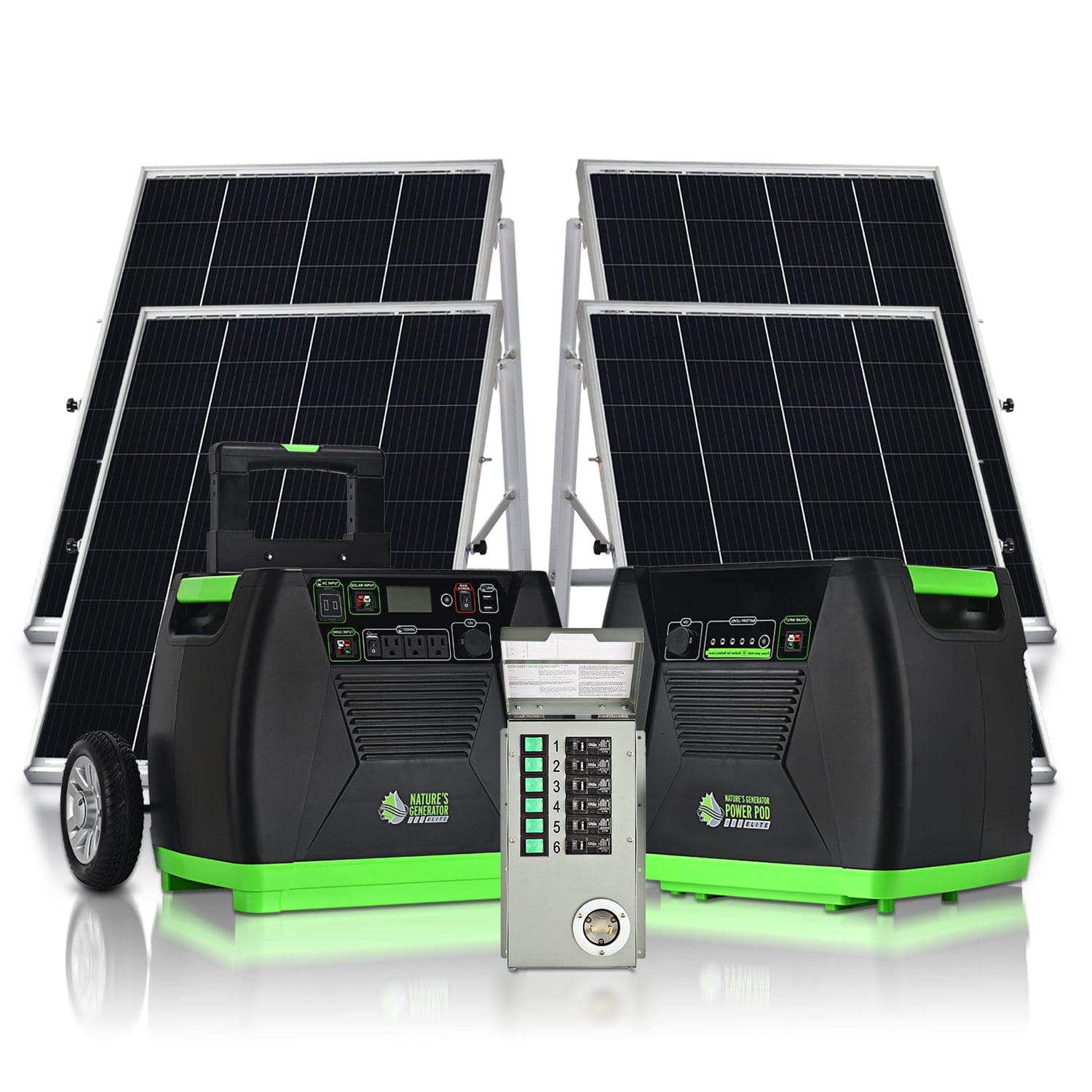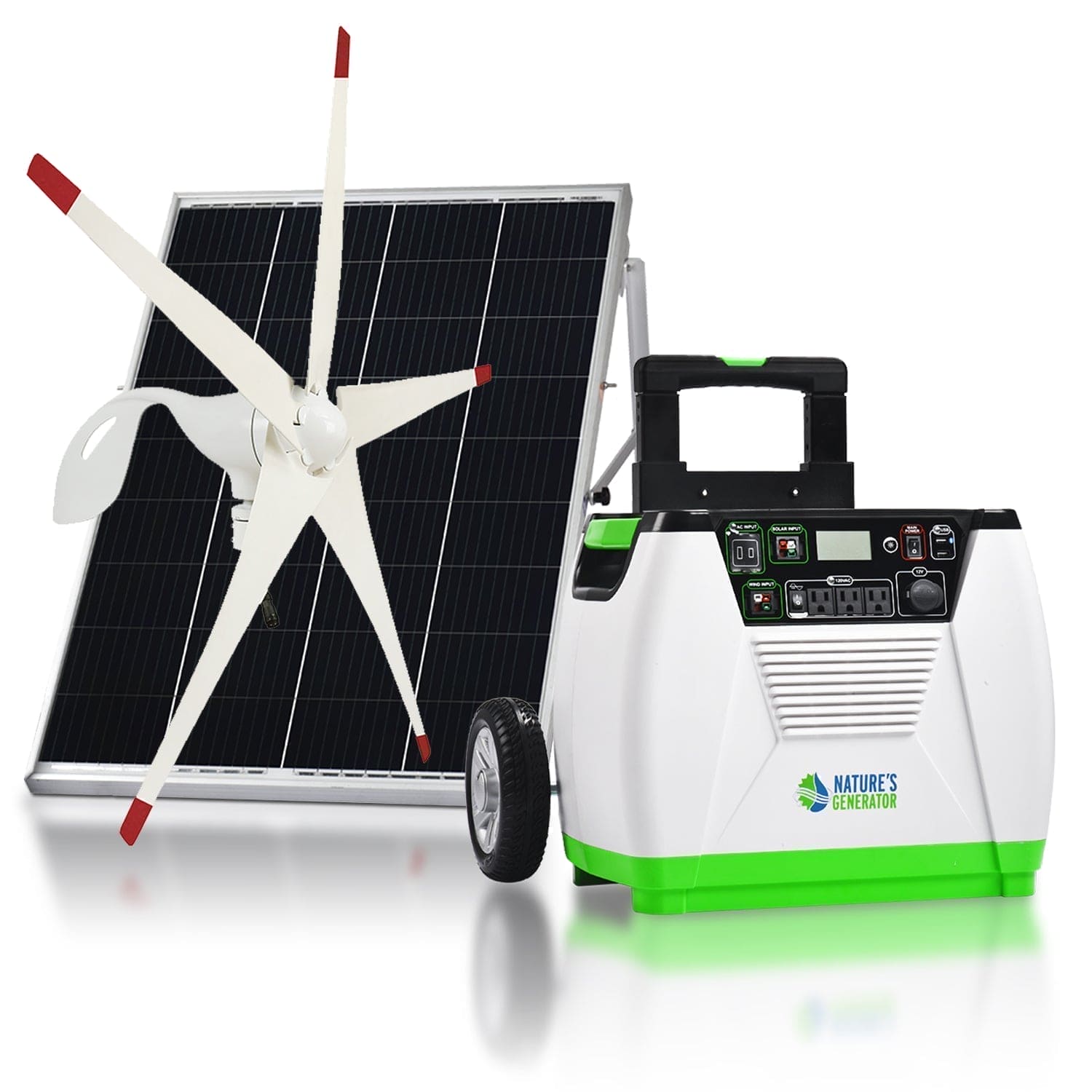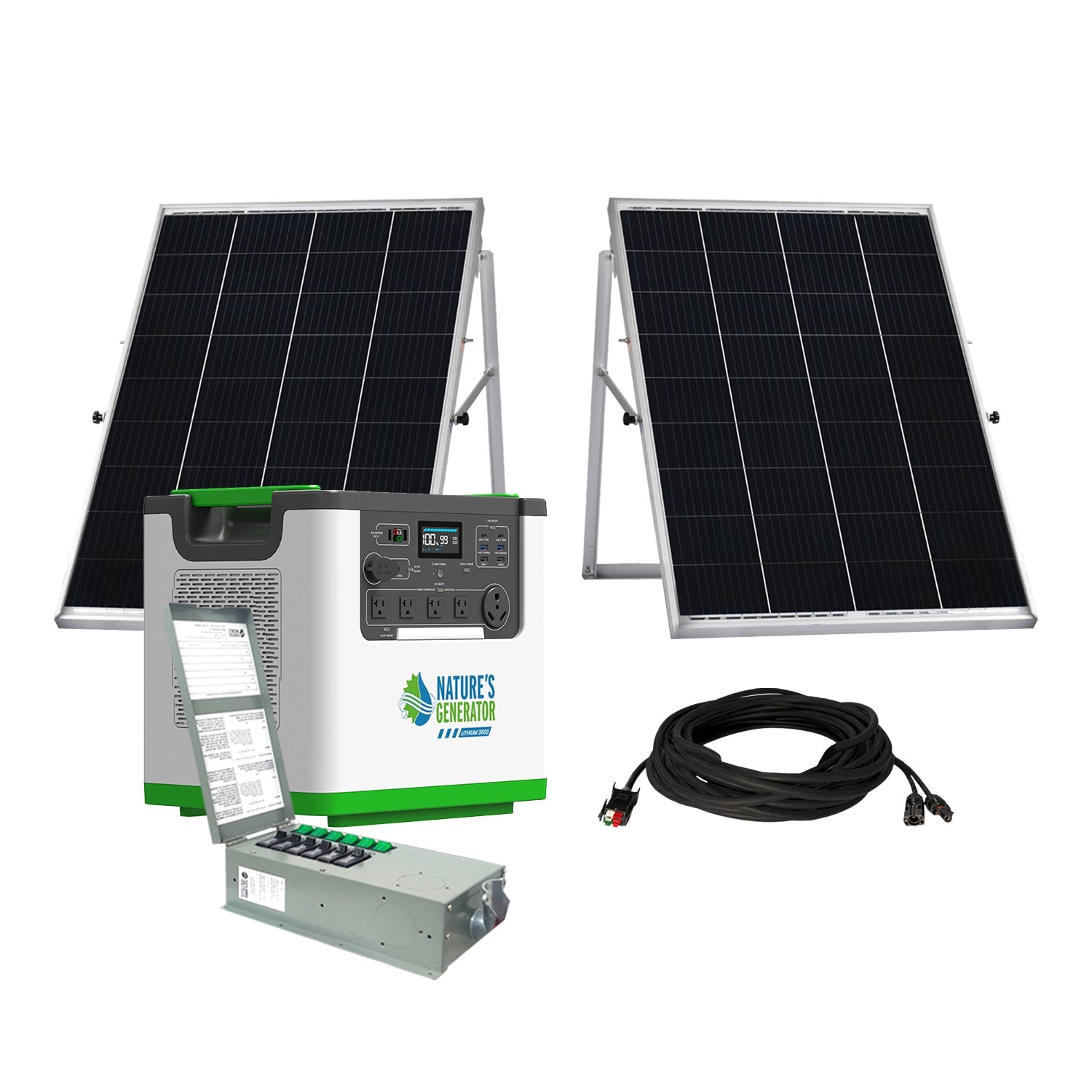Have you ever asked yourself, “What size solar generator do I need to keep my house running in a power outage?” You’re not alone. Flashing lights, a silent refrigerator, and dead phones: A power loss can seem as if the world hit pause. That’s when the right solar generator isn’t a gadget; it’s peace of mind.
At Power Independence HQ, we want to help you do it right. This guide takes you by the hand and walks you through how to find a solar generator sized right for your home, no fluff, just clear steps, everyday stories of people like you (and me) giving actionable advice.
Why Generator Size Matters
Selecting the right solar generator size is of great importance so that all your backup power requirements are fulfilled easily and you do not have to bear additional costs. Choose a generator that’s too small and you may soon find yourself out of power when you need it most in the middle of a blackout or while running keeps life-saving equipment powered up. A small generator might not have enough power to charge multiple gadgets at the same time, which can be a hassle.
On the other hand, it’s also possible to make the wrong choice by picking a generator that is too large. Yes, you will probably have more power than you can ever use, but you will also pay for that capacity, much of which may not be used. Bigger generators tend to be more cumbersome, weighty, and generally pricier in terms of upfront costs and long term care. And they can be more complex to install and run, barring some exceptions.
It just has to be the right balance. A properly sized solar generator should enable you to keep your home or critical devices up and running during a power outage without breaking the bank or exposing you to undue complication. It is about having sufficient capacity to keep everything moving smoothly, but not too much extra weight and cost from an oversized system. Because by working out your energy requirements, you can choose a generator that delivers exactly enough power – and avoid overkill.
Understanding the Two Key Metrics: Capacity & Output
There are two critical specs to know when sizing a solar generator:
Continuous Output (Running Watts)
This is the constant power that can be provided by the generator. For instance, a refrigerator runs between 300–800W constantly, depending on the model.
Peak Output (Starting Watts)
Some devices take a temporary power surge to get started. That fridge may pull 2–3x its running watts the moment it motor starts. That starting surge matters.
So when you wonder what size solar generator do I need, what you’re actually asking is: “what are the running watts of my devices, and can that generator support a startup surge without damaging itself?”
Step‑by‑Step: Calculating Your Home Needs
Time to roll up our sleeves and do some math (don’t panic, I promise it will be easy).
Step 1 – List Your Essentials
Ask: “If the grid is to go down tomorrow morning, what needs to be kept on?”
For example: fridge, lights, WiFi router, perhaps a fan or heater (depending on the weather).
Step 2 – Find Out Wattage
Look at the label or consult the manual for each device. If you are only given amps and volts: Watts = Volts X Amps.
Step 3 – Estimate Run Time
Determine the number of hours you need the generator to run your essentials. For a few hours? Overnight? One day? Longer?
Step 4 – Add Peak Wattage
Add the largest starting surge to your equipment. This will guarantee that you select a generator that won’t overload when the fridge kicks in.
Step 5 – Add a Safety Margin
Just as we carry an umbrella for when it rains, you’ll want that buffer. It’s generally recommended to oversize by 20‑30%.
Example
Let’s say:
Fridge: 500W running, 1500W surge
Lights and router: 150 W
Total running = 650 W
Pick a generator suitable for 1000+W running and 1500+W peak.
If you need to support additional devices, sources say a small house backup could start closer to 2000W output.
Other Factors to Keep in Mind
Storage Capacity (Watt‑Hours)
Output (watts) is about instantaneous power. But storage (watt‑hours) tells you how long that power lasts. For home use, you’ll want sizeable storage.
Solar Input & Recharge Time
If you have a solar‑charged generator, how many panels and hours of sun? A model may provide “X kWh per day” or “solar input YW” specs.
Portability vs Permanence
Are you looking for a portable or home-installed power station? If you’re planning to use it for full‑house backup, you might be more inclined toward a permanent installation.
Budget & Value
Larger capacity = higher cost. But consider: How much is continuous power worth to you? And don’t overspend for capacity you won’t realistically use.
Here are some of the best Solar Generator you can pick from:
2. Nature's Generator Gold - WE System Solar Wind Hybrid Generator
3. Nature's Generator Solar Generator Lithium 1800 with Transfer Switch
3. Nature's Generator Solar Generator 3600 with Transfer Switch
Common Mistakes to Avoid
-
Underestimating start‑up surge leads to overload and failure.
-
Counting only watts, ignoring run time, you might have power, but only for minutes.
-
Buying a “one‑size‑fits‑all” model every home’s needs differ.
-
Ignoring expandabilit,y choosing a generator that can’t grow if your needs grow.
How We Can Help You
At PowerIndependenceHQ, we are dedicated to power solutions that fit your real life. Be it ensuring that your crucial appliances stay up and running during a power outage or you are looking for a more permanent solution for backup, we’ve got you sorted.
-
We walk you through the sizing process step‑by‑step.
-
We match you with models that deliver the right output and storage.
-
We support you with installation and service advice so you aren’t flying blind.
When you ask what size solar generator do I need, our team is ready to help you answer that with confidence.
Last but not least, how much of a solar generator do I need: calculating how large a solar generator to purchase really amounts to equating output + storage with the needs of your home.
List your essentials, get the wattages, factor in surge, and make sure you have enough run‑time. Then choose a model that won’t fail you when you need it the most.






